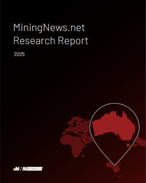This article is 6 years old. Images might not display.
Rio and Chinalco signed the non-binding heads of agreement on October 28, 2016, with initial plans to advance to a formal sale within six months.
It was envisaged Rio would receive payments of US$1-1.3 billion, comprising per tonne payments from the start of production.
"Rio Tinto and Chinalco, who respectively own 45.05% and 39.95% of Simandou, will continue to work with the Government of Guinea to explore other options to realise value from the world-class Simandou iron ore deposit," Rio said in a brief statement today.
Just days after the company announced the pending sale of the project in 2016, it sacked Energy & Minerals chief Alan Davies and Legal & Regulatory Affairs group executive Debra Valentine over the discovery of $10.5 million in payments made to a consultant in 2011.
Authorities across several countries, as well as Rio itself, is continuing to investigate the payments.
At the 2017 annual general meeting, then-Rio chairman Jan du Plessis denied the controversy had anything to do with its withdrawal from Simandou.
Du Plessis said with capital costs of $20 billion, including $12 billion for supporting infrastructure, Simandou was simply a deposit the company didn't wish to develop.
"The conclusion of the board was, we are miners, and to make an investment of that nature in infrastructure…it just didn't make sense for us," he said at the time.
But the controversy for Rio and Simandou started before that.
Rio has been involved with the project since 1997, discovering the deposits in the early 2000s.
However, in 2008, the government of Guinea stripped Rio of its rights to Simandou, alleging breach of a deal which called for the quick development of a mine. The government then awarded rights to half of Simandou to BSG Resources (BSGR), the mining arm of Israeli billionaire, Beny Steinmetz.
In 2010, Vale agreed to pay BSGR $2.5 billion for a 51% stake in its Simandou assets, the same year Rio signed a $1.35 billion deal to introduce Chinalco to its slice of the project (with payment deferred until mining starts) - followed by a payment of $700 million to the Guinea government to settle outstanding issues.
Rio tried to sue Vale and BSG in 2014, alleging "theft" of half the project, but the case was thrown out in 2015.
Simandou is one of the world's largest undeveloped iron ore resources with a resource of 2.75 billion tonnes at 65.5% iron.
Rio shares rose by 1.2% to A$75.08.
























